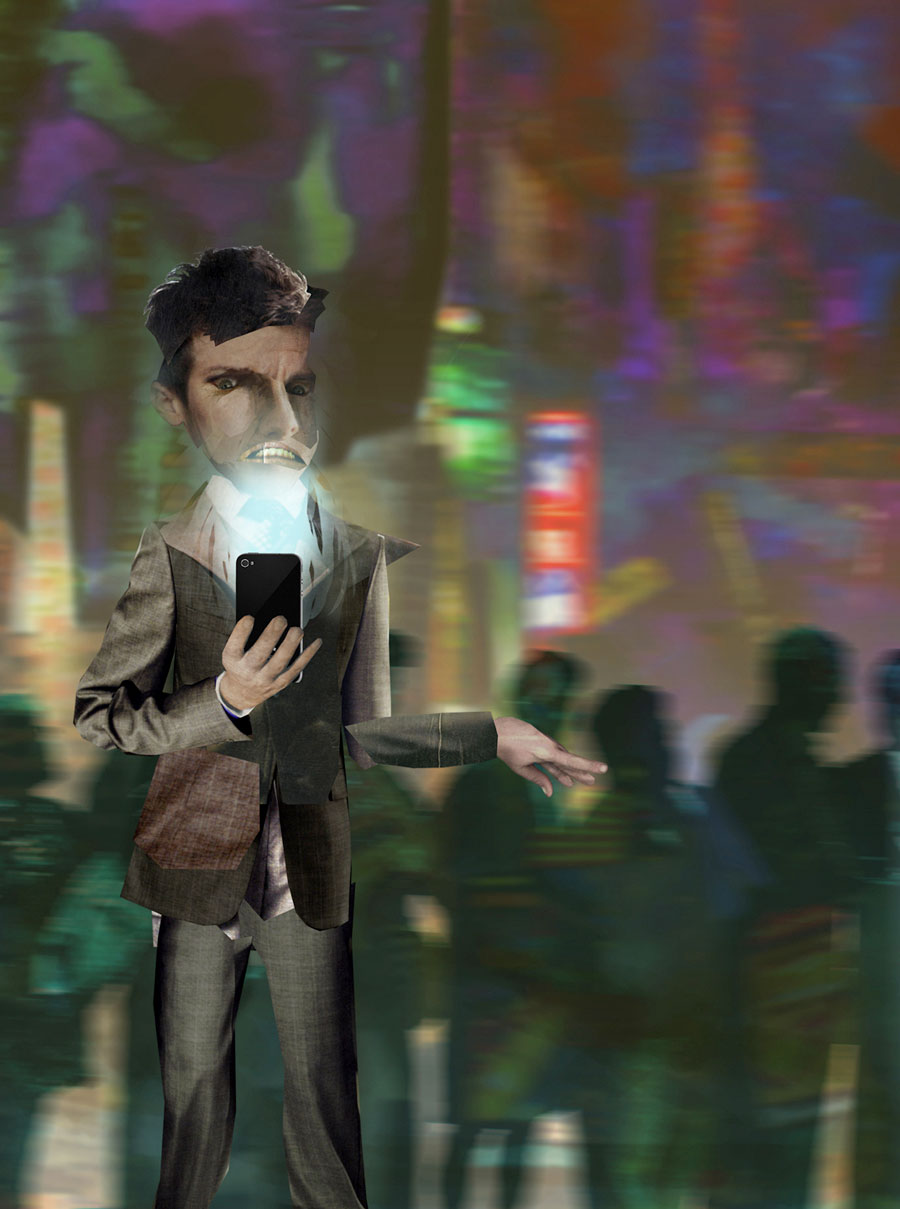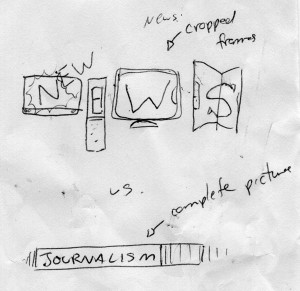
“This piece speaks to the ability of mobile communication technology to completely engulf us, block out the hustle and bustle of the world around us and entrap us in a situation that could be miles away. The figure in the piece has a sad/upset look on his face as he stares into his phone, meanwhile all around him the world wizzes by.” – by Jason Skinner, Artist in Residence. Creative Commons, Attribution-NonCommercial-NoDerivs 3.0 Unported
At the start of a new year, it may be useful to offer a minor lesson about how the web works with news organisations.
It’s possible you haven’t realised this, but when a website chooses headlines such as “You won’t BELIEVE what happens next!”, that is designed to make you click the link because you genuinely want to see what happens next, regardless of the source of the information. That is called clickbait.

Artist in Residence Jason Skinner is exploring the difference between “news” and “journalism”, where news can sometimes just be a fragmented, quick summary, limited by particular mediums, versus the whole picture that journalism can offer.
Similarly, SEO (search engine optimisation) means that news organisations title news stories about Oscar Pistorius and not Reeva Steenkamp, the woman he shot and killed, because people know and search for the name of the criminal, not the victim. To do the opposite relies on a smaller number of people who will avoid the headline leading with the shooter’s name and instead choose the victim. News organisations are required, by the power and dominance of Google and its algorithms, to code news with that slant and manipulation.
When you click on the headline designed to bait you, you encourage more of the same headlines.
Let’s say, for example, that a UK resident named Katie Hopkins tweets something. Ms Hopkins creates the tweets knowing that news organisations report them. News organisations report them because they know the public will click the links and share them. And then the cycle starts again.
Ms Hopkins, we presume, makes money from TV appearances and articles in papers and magazines that, in turn, get readers because many members of the public like to get riled up. Commercial news organisations make money from the web traffic that readers provide them, which in turn gets paid to media constructs such as Ms Hopkins.
Tomorrow does not report on a media construction such as Ms Hopkins. That is the choice of a news organisation. But if everyone is clicking on stories about what Ms Hopkins tweets or states, does that mean Tomorrow should report it?
Tomorrow has a duty to educate and entertain, to balance both needs and desires. But do you, as readers, expect that entertainment means what you will click on, knowing full well it will enrage you and push your buttons? If you know that the media is manipulating you, does that mean they should continue to manipulate you because you’re not clicking away?
[Tweet “If you know that the media is manipulating you, does that mean they should continue to manipulate?”]Readers, consumers and the public have a choice. Human nature does make all humans vulnerable to choosing what attracts us, like dazzling sparkles catching the eye.
To quote the film L.A. Story, “the best thing to do is, right before you go out, look in the mirror and turn around real fast, and the first thing that catches your eye, get rid of it”.
So, in 2015, the bits of “news” that catch your eye because news organisations are manipulating you to notice? Get rid of them.
Choose reporting, choose Tomorrow.

